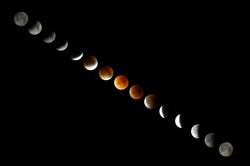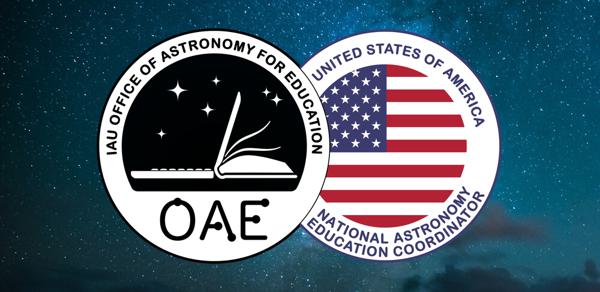Glossary term: Eclipse
Description: Une éclipse se produit lorsqu'un objet astronomique est temporairement obscurci par le passage dans l'ombre d'un autre corps ou par le passage d'un autre corps entre l'observateur et l'objet. Les éclipses sont par exemple des éclipses lunaires, lorsque la Terre se trouve entre le Soleil et la Lune et que la Lune passe dans l'ombre de la Terre, ou des éclipses solaires, lorsque la Lune se trouve entre la Terre et le Soleil et bloque une partie ou la totalité de la lumière du Soleil. Si le corps masquant la lumière ne couvre qu'une petite partie de l'autre corps, ce phénomène est appelé un transit.. S'il obscurcit complètement l'autre corps, ce phénomène est appelé occultation.
Related Terms:
See this term in other languages
Term and definition status: The original definition of this term in English have been approved by a research astronomer and a teacher The translation of this term and its definition is still awaiting approval
The OAE Multilingual Glossary is a project of the IAU Office of Astronomy for Education (OAE) in collaboration with the IAU Office of Astronomy Outreach (OAO). The terms and definitions were chosen, written and reviewed by a collective effort from the OAE, the OAE Centers and Nodes, the OAE National Astronomy Education Coordinators (NAECs) and other volunteers. You can find a full list of credits here. All glossary terms and their definitions are released under a Creative Commons CC BY-4.0 license and should be credited to "IAU OAE".
If you notice a factual or translation error in this glossary term or definition then please get in touch.
Related Media
L'éclipse entre nous, par Muhammad Rayhan, Indonésie
Credit: Muhammad Rayhan/IAU OAE
License: CC-BY-4.0 Creative Commons Attribution 4.0 International (CC BY 4.0) icons
Red Moon, by Daniel Henrion, France
Credit: Daniel Henrion/IAU OAE
License: CC-BY-4.0 Creative Commons Attribution 4.0 International (CC BY 4.0) icons










